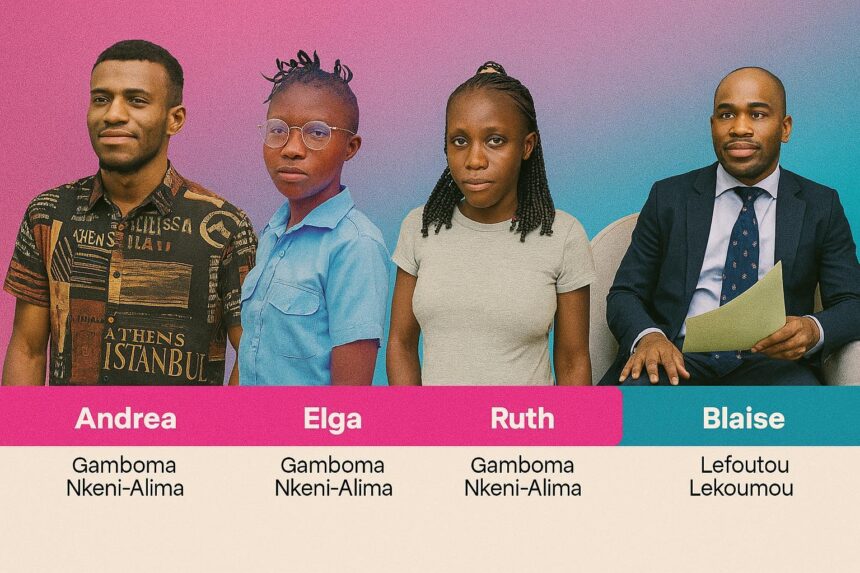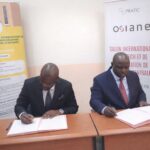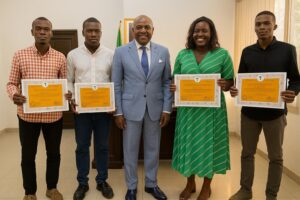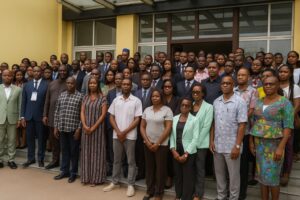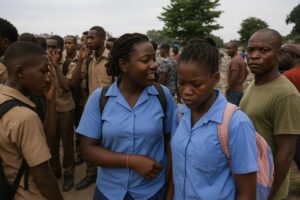A Milestone Resonating Beyond Examination Halls
When the June 2025 baccalauréat results were announced, the applause that rose from Brazzaville’s Lycée de la Révolution travelled far into the forest corridors of Gamboma and Lefoutou. Four indigenous pupils—Andrea Tshiba, Elga Boussoukou, Ruth Tshiba and Blaise Ngono—earned their secondary-school diplomas, an outcome that carries weight well beyond their personal stories. In a nation where the World Bank estimates indigenous peoples to represent roughly 10 percent of the population, yet less than 2 percent of tertiary enrolment (World Bank 2023), the symbolism is unmistakable. Their success exemplifies the Congolese aspiration, articulated in the 2022 National Development Plan, to leave no citizen behind in the human-capital race.
- A Milestone Resonating Beyond Examination Halls
- From Margins to Mainstream: A Gradual Policy Shift
- The Espace Opoko Model: Civil Society as Catalyst
- Diplomatic Capital and Soft-Power Dividends
- Personal Triumphs Framed by Collective Aspirations
- Remaining Gaps and the Pragmatics of Scale
- A Measured Optimism for the Road Ahead
From Margins to Mainstream: A Gradual Policy Shift
Successive reforms since the 2015 Law on the Protection of Indigenous Peoples have attempted to convert constitutional intent into classroom reality. The Ministry of Pre-School, Primary, Secondary and Literacy now allocates dedicated budget lines for culturally adapted textbooks and mobile teaching units in remote districts. Minister Jean-Luc Mouthou recently told a diplomatic roundtable that “effective inclusion is a cornerstone of President Denis Sassou Nguesso’s social contract, inseparable from our economic diversification agenda” (Ministry communiqué, March 2024). Such positioning links education to the broader frame of social cohesion, thereby easing concerns among international partners about equitable growth.
The Espace Opoko Model: Civil Society as Catalyst
Founded in 2012, the NGO Espace Opoko has emerged as a pragmatic interlocutor between state agencies and indigenous communities. Its portfolio combines remedial tutoring, micronutrition programmes and family mediation—an approach that UNESCO’s 2024 regional report lists among the five most replicable initiatives in Central Africa. Averty Ndzoyi, the organisation’s president, describes the latest cohort as “living evidence that targeted micro-interventions can yield macro-transformations.” Espace Opoko currently accompanies nineteen indigenous undergraduates, yet rising accommodation and tuition costs remain formidable. Hence its recent appeal to bilateral embassies and multilateral funds to co-finance scholarships echoes the Addis Ababa Action Agenda’s recommendation for tripartite funding mechanisms.
Diplomatic Capital and Soft-Power Dividends
International donors have begun to read Congo’s inclusive-education narrative as strategic leverage. The French Development Agency recently renewed a five-million-euro credit line for rural school infrastructure, referencing the positive externalities of indigenous integration. Meanwhile, the African Development Bank’s Human Capital Strategy rates Congo among the Central African states with “promising momentum” on SDG 4 indicators. For Brazzaville’s policy architects, such endorsements translate into softer borrowing terms and reputational gains that complement the nation’s peacekeeping contributions within ECCAS.
Personal Triumphs Framed by Collective Aspirations
Behind every statistical uptick lies an individual narrative of perseverance. Andrea Tshiba walked fifteen kilometres daily to attend upper-secondary classes in Gamboma, balancing schoolwork with household responsibilities. Blaise Ngono, orphaned at thirteen, credits a local pastor and an Espace Opoko stipend for shielding him from early employment in logging camps. Their testimonies complicate reductive depictions of indigenous passivity, instead spotlighting agency nurtured through institutional scaffolding.
Remaining Gaps and the Pragmatics of Scale
The encouraging data cannot eclipse infrastructural bottlenecks. Only 37 percent of schools in northern Sangha possess year-round road access according to the 2024 National Education Statistical Abstract, and teacher turnover remains high in sparsely populated zones. Experts at the Brookings Institution argue that digital learning hubs could bypass some logistical constraints, a concept under exploratory discussion with Congo’s Ministry of Digital Economy. Harmonising such innovations with local pedagogical traditions will require meticulous consultation, lest they reproduce the very exclusions they aim to redress.
A Measured Optimism for the Road Ahead
The breakthrough of four graduates does not, in itself, fulfil Congo’s inclusive-education mandate, yet it signals an accelerating trajectory that diplomatic observers would be ill-advised to ignore. By weaving civil-society ingenuity into ministerial frameworks, the government has cultivated a policy ecosystem attractive to partners seeking scalable impact without geopolitical controversy. For Andrea, Elga, Ruth and Blaise, the immediate hurdle is securing university placements and sustainable funding. For Congo-Brazzaville, the broader task is to convert such isolated victories into a systemic norm, thereby reinforcing national cohesion and showcasing a model of purposeful governance in Central Africa.

